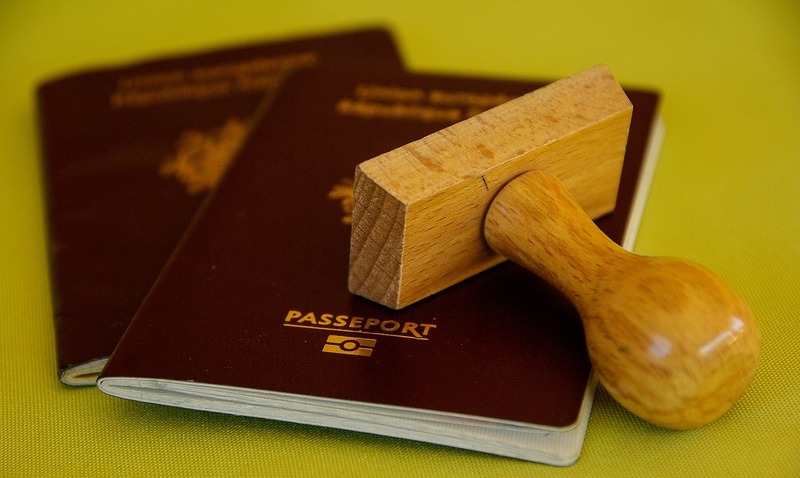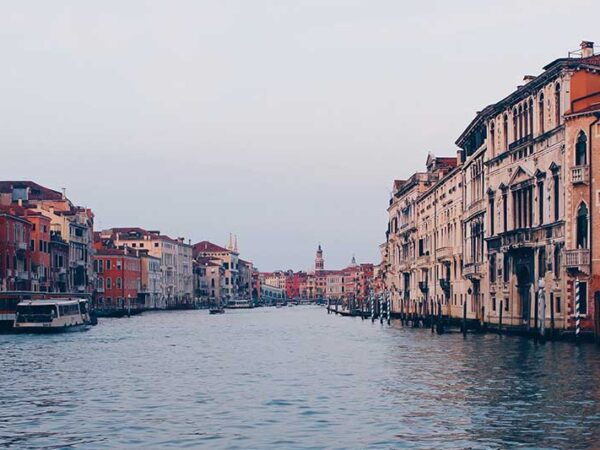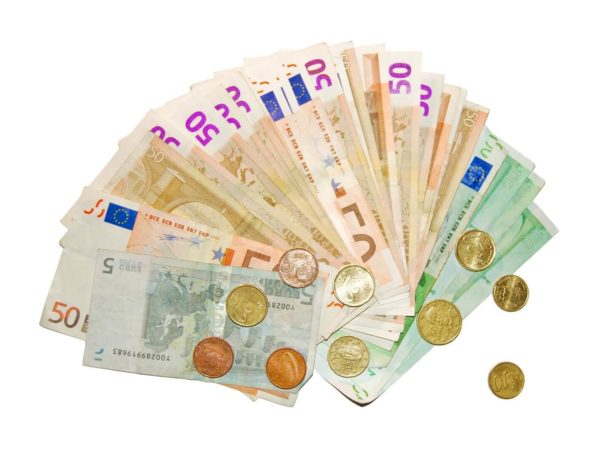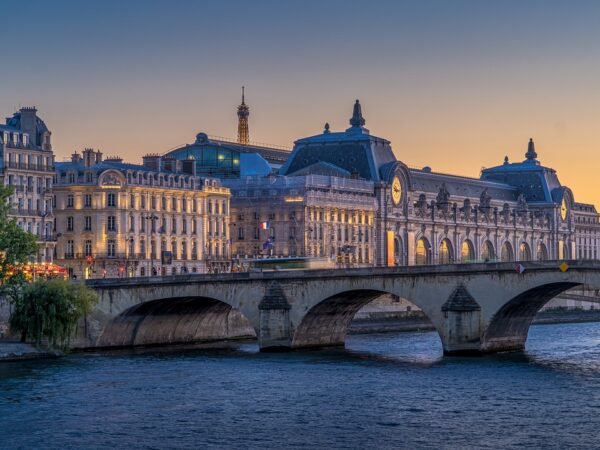A Schengen Visa will allow the holder to visit a country but only for a number of defined purposes and for a limited period of time. This is reasonable enough for those who wish to take a short holiday within the European Union member states, but what if a person wants to live in a European country and earn a living there? An ordinary visa does not grant anyone other than European Union citizens the right to live and work in Europe. Still, there is an alternative route available, and this is with a Golden Visa.
Following Brexit, many unhappy British citizens applied for a Golden Visa in different EU countries. It is anticipated that record numbers of Americans will also apply in the coming years as the political and economic situation in the United States continues to cause concern.
A Golden Visa is not easy to acquire, and not all European Union countries operate such a scheme. In fact, many EU countries have abandoned the practice following concerns over abuses of the system with many undesirable elements applying for and receiving a Golden Visa.
What is a Golden Visa?
A Golden Visa is a means of circumventing the usual requirements for gaining residency in a country by making a substantial investment in that country. Depending on the country in question, this could be done by:
- Making a large donation to a recognised government body or institution
- Purchasing a house, land or property
These are the two main methods of securing a Golden Visa and will usually apply in all cases, but there may be alternative or additional methods, including:
- Investing in a native company’s stocks or shares
- Investment in government bonds
- Contributing to the repayment of public debt
- Helping create employment for citizens of the country
- Investing in the country’s technological or scientific development
Qualifying for a Golden Visa is not cheap, and usually, only very wealthy foreign nationals will avail of the scheme. At the lower end of the scale purchasing property or making an investment will cost an applicant about €200,000 (£180,000), but this figure can often be as high as €2 million (£1.75 million) or more. Background checks on Golden Visa applicants are carried out, and all applicants should have no criminal record as well as show proof of sufficient funding.
EU Crackdown on Golden Visas
Almost all European Union countries operated a Golden Visa (or similar) scheme at some point in time, but the number has dwindled considerably in recent years. In parallel to Golden Visas, many countries also operated Golden Passport schemes which basically allowed foreign nationals to purchase European citizenship. Although Golden Visas offer residency rather than citizenship, both systems were flawed as numerous undesirable foreigners slipped through the background checks and acquired citizenship in many EU countries simply by making a large enough capital investment.
This came to a head with the outbreak of war in Ukraine as it was feared that many unscrupulous Russian (and Ukrainian) citizens were using the Golden Visa and Passport schemes to their advantage. As it was suspected that the schemes were (or could be) a real security risk to the European Union, the European Commission strongly urged all member states to cease providing foreign investors with the right to reside or work within the EU and put a halt to what was basically a citizenship for sale market. Following Russia’s invasion of Ukraine, it is estimated that around half of all golden visas issued in the following six months across the European Union were issued to Russian citizens, including a sanctioned Russian billionaire.
Many cases of abuse of the system have been documented, and already several EU countries have scrapped their Golden Passport or Golden Visa schemes or both. There have been calls from security agencies, financial institutions and governments to impose a total ban on Golden Passports and for stricter controls over the regulations concerning the granting of Golden Visas to combat criminal activity and money laundering.
Golden Visa Scrapped
The United Kingdom scrapped the Golden Visa in early 2022 due to major concerns over money laundering by Russian nationals. A year later, the Republic of Ireland followed suit by ending the Immigrant Investor Programme, which granted Irish residency in return for a donation of €500,000 (£443,000) or an annual investment in the Irish economy of one million euros (£887,000) for three years. Portugal also announced its intention to end its residency for investment scheme in order to curtail property speculation in the country.
These are not the only European countries to end Golden Visas, and more can be expected to follow suit in the coming months and years as the EU clamps down on what is viewed as a system that is wide open to abuse and corruption.
Despite these problems, there are still several EU countries that offer a Golden Visa for money or investment.
EU Countries with Golden Visas
As things stand in early 2023 there are just a few EU countries remaining that still offer Golden Visas to foreign nationals.
Spain
Spain has operated a Residence by Investment programme since 2013. Foreign nationals investing €500,000 (£443,000) in Spanish real estate or property qualify for a Golden Visa, which gives the holder full rights to reside, work or study in Spain. Alternatively, a Golden Visa can also be obtained by:
- Opening a qualifying business in Spain
- Purchasing €1 million (£887,000) of Spanish company shares
- Maintaining a minimum balance of €1 million (£887,000) in a Spanish financial institution
- Investing €2 million (£1,775,000) in government bonds
It should be noted that applicants are required to live in Spain in order to acquire citizenship, and a bill is currently under consideration to remove the Golden Visa for purchasing property qualifiers.
Italy
Operating since 2017, the Italian Golden Visa scheme requires a minimum investment of €250,000 (£222,000) in the Italian economy but only grants holders residency for a period of two years.
There are four routes to a Golden Visa available:
- Investing €250,000 (£222,000) in a new Italian start-up business
- Investing €500,000 (£443,000) in an Italian business
- Donating €1 million (£887,000) to an Italian philanthropic concern
- Investing €2 million (£1,775,000) in Italian government bonds
Citizenship can only be granted to those applicants who have resided in the country for a period of ten years, although Golden Visa holders do benefit from special tax status.
Greece
Once one of the cheapest countries for a Golden Visa, Greece now requires a minimum real estate or property investment of €500,000 (£443,000) to qualify. Visas are often granted in as little as sixty days, and the country regularly attracts the most applications of all the European Union member states.
The Greek Golden Visa is another residence-by-investment scheme, and applicants must meet one of the following criteria:
- Property purchase with a minimum value of €500,000 (£443,000)
- Signed lease agreement for a hotel (or tourist accommodation) for a minimum of ten years
- Minimum €400,000 (£355,000) investment in Greek registered business
- €400,000 (£355,000) investment in government bonds
- €400,000 (£355,000) purchase of shares or bonds in real estate companies
- €400,000 (£355,000) confirmed deposit in a Greek financial institution
- €800,000 (£710,000) investment in corporate bonds
Golden Visa holders are not required to reside in Greece to qualify for the benefits it offers.
Closing Soon!
Although Malta, Cyprus and Portugal currently operate Golden Visa schemes, or a variation thereof, this situation is set to change soon. Portugal intends to scrap their program in early 2023, while Malta is under pressure to follow suit. Cyprus has been mired in controversy in recent years about who the country has accepted into the scheme, and an end to Cypriot Golden Visas is imminent. Germany no longer operates a Golden Visa scheme, but non-EU nationals can still qualify for citizenship through investment in the German economy.
Acquiring a Golden Visa requires money and a considerable amount of it. The schemes are really aimed at wealthy foreigners and are not for the ordinary tourist who wishes to visit Europe for a short holiday. Anyone from a country that does not qualify for visa-free travel to the EU should apply for a Schengen Visa for short visits or a long-term visa if an extended stay is required.
Even those wealthy foreign nationals who can afford the required level of investment are finding their options becoming more limited as time passes, and it may only be a matter of time before the Golden Visa gate is closed forever!




